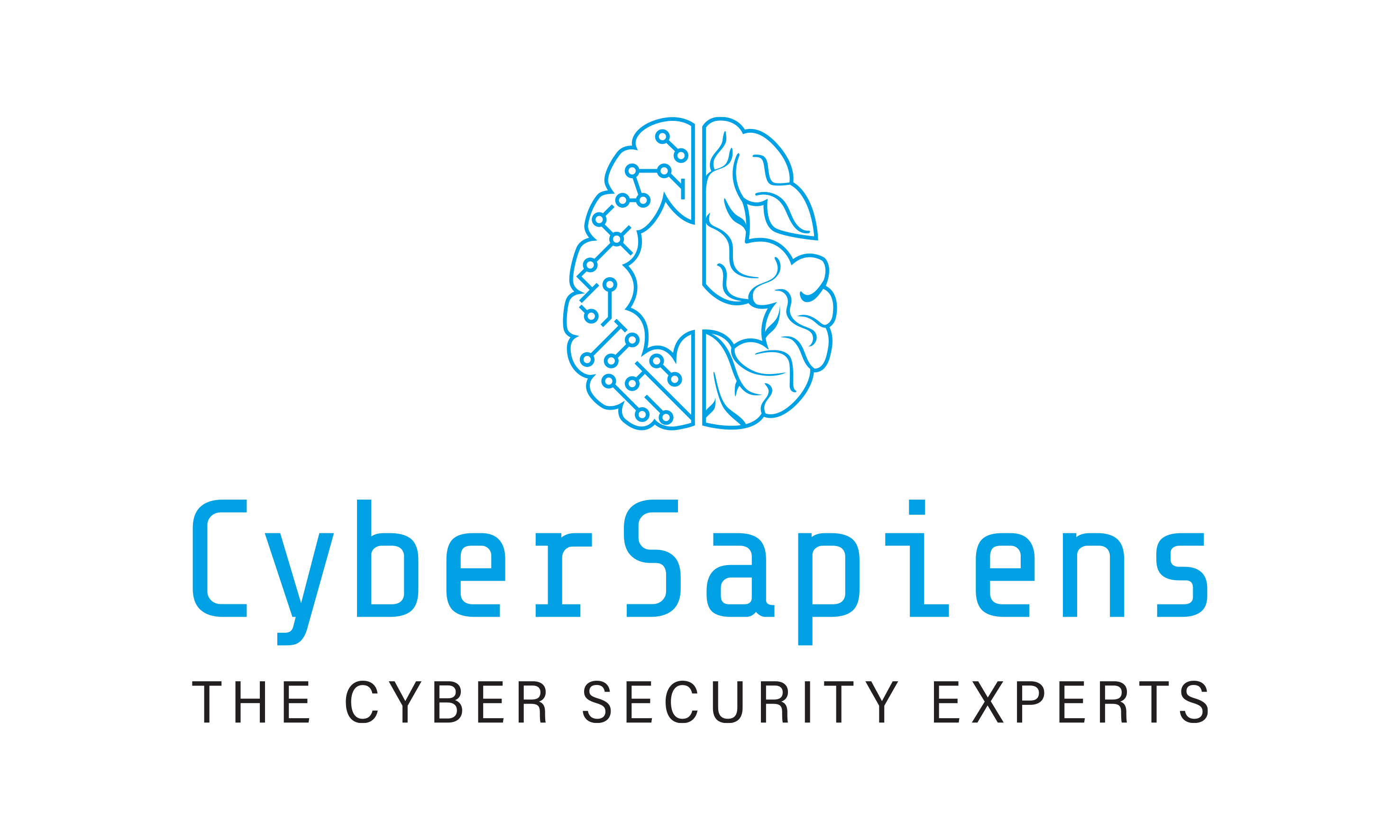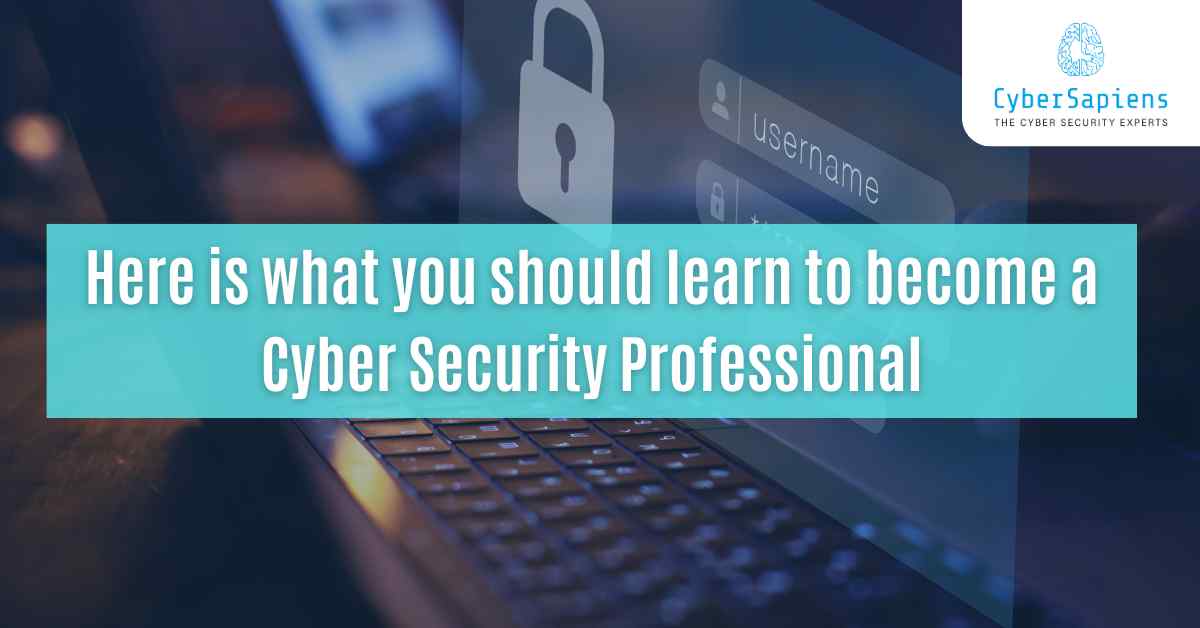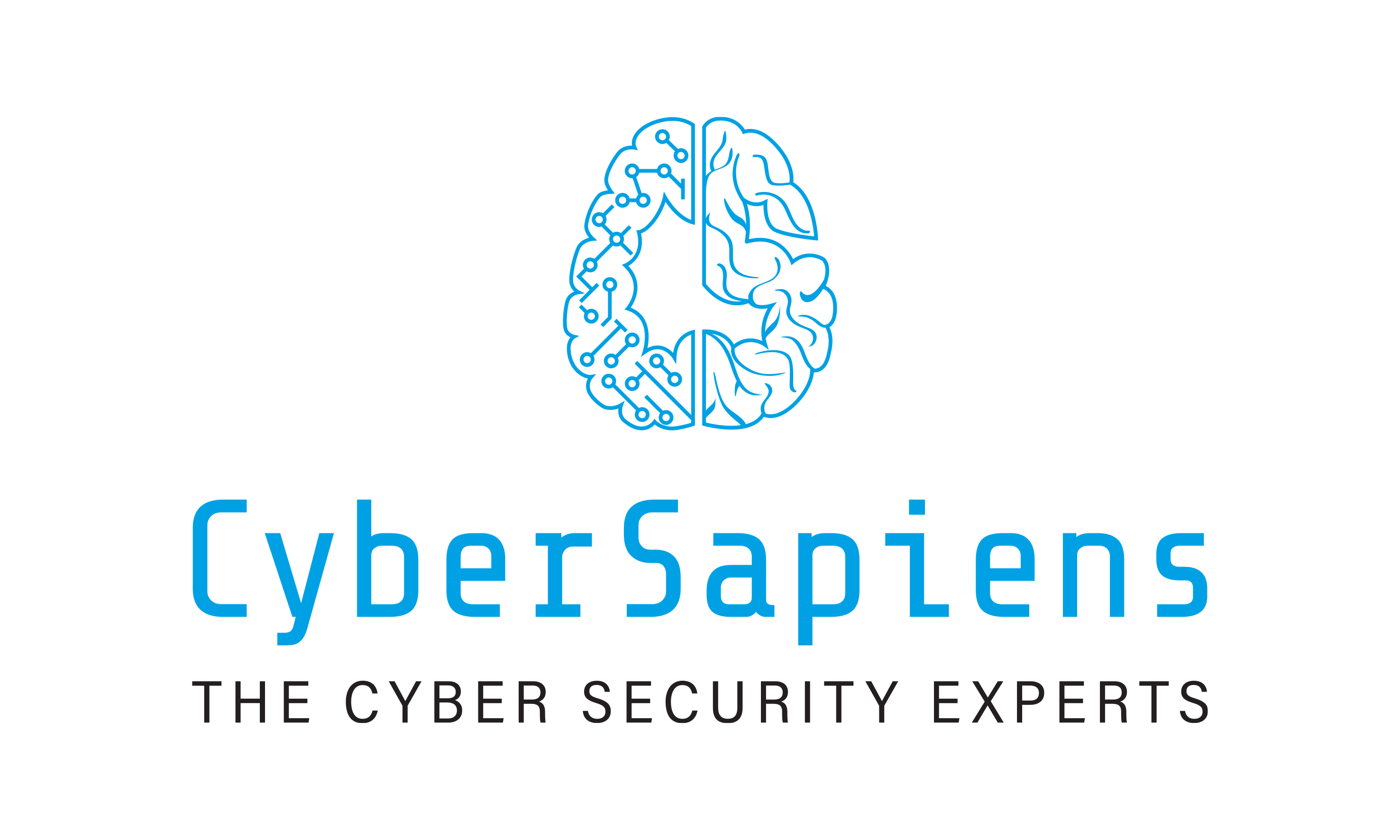The digital age for the reason of the many progresses that it broke into our lives, has the potential of providing a great opportunity for those with unscrupulous intent. As our dependence on technology increases, the demand for cybersecurity experts – the keepers of information systems – keeps going up.
If you consider a career choice that is stimulating and challenging both mentally and intellectually and provides satisfaction in safeguarding data and important information, cybersecurity could be your destination. This is a thorough overview that will provide you with the necessary basics to start a successful career.
So, guys After doing thorough research, we have created a list of what you should learn to become a cyber security professional:
The Skills you should learn to become a Cyber Security Professional
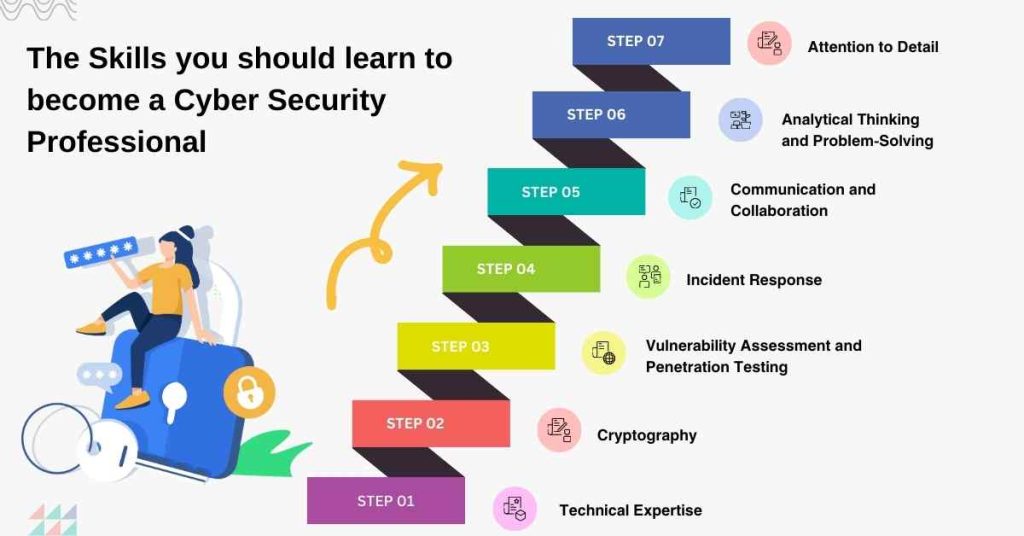
A successful cybersecurity expert has a rare combination of both technical and analytical skills plus problem-solving skills. Here are some key areas to focus on
1. Technical Expertise:
It is essential to start the course with a strong base in networking, operating systems and system administration. By being proficient in languages such as Python and also scripting languages such as Bash, it is possible to add a lot of value. Knowing the intricacies of let’s say the threat thus requires an in-depth understanding of various tools and technologies related to that narrowed field in cybersecurity.
2. Cryptography:
Having a grasp of the encryption practices and situations in which they are utilized is very important.
3. Vulnerability Assessment and Penetration Testing:
By considering the existing weaknesses in the systems and networks it is one of for master skills. Passing attacks is about adopting a behaviour that could be used to detect vulnerabilities before the effect is realized.
4. Incident Response:
There is a need to identify what such responses will be like, how evidence will be gathered, and how systems that have been compromised will be restored is crucial.

5. Communication and Collaboration:
Such cybersecurity problems need associated staff from strategic, procedural, or operational teams collectively sometimes. This is an important thing as this will be needed to illustrate the technical issues in a simple language to non-technical people.
6. Analytical Thinking and Problem-Solving:
Cyberspace experts should have the ability to examine complex situations, figuring out the main reason for problems and creating response procedures for those.
7. Attention to Detail:
An acute perception of detail is an important factor that is known to give the ability to be able to see risks and anomalies in security.
Educational Paths to Become a Cyber Security Professional
There are many ways in which one can acquire the knowledge and competency to pursue a career in cybersecurity. Here are some common educational paths
- Bachelor’s Degree: Along with a Bachelor’s degree in computer science, information security or any related courses a person has crossed the second line in the path to cybersecurity mastery. Cybersecurity programs are also being shared with the universities in addition to what they already offer in general cybersecurity.
- Certifications: A certification from many reputable industry entities proves that the key area has been well learned and understood. There are lots of renowned certifications available from some insignificant are such as Certified Ethical Hacker (CEH), Security+, and Certified Information Systems Security Professional (CISSP).
- Online Courses and Training: There is literally every single kind of cyber security course and training program available online across even simple communication devices. So certain that learner can learn whenever he or she wishes to.
Building Your Cybersecurity Career Path
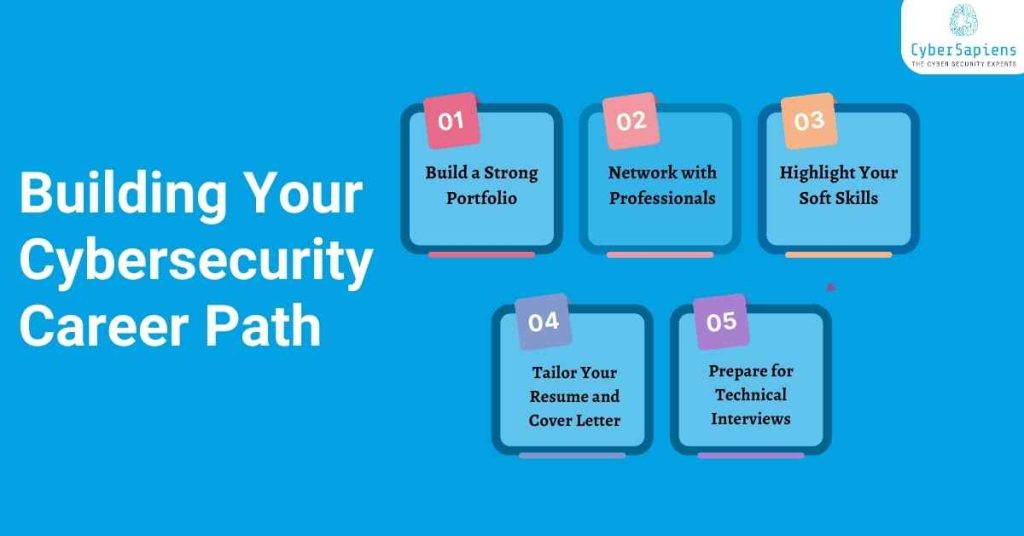
1. Build a Strong Portfolio:
- Take part in open-source security projects.
- Get involved in bug bounty programs, where one is compensated through rewards when a security weakness in-app platforms is discovered.
- Establish a personal website or blog, in which you can prove yourself ready to contribute to cybersecurity through the displayed knowledge and enthusiasm.
2. Network with Professionals:
Register for relevant events, conferences, and online networking platforms as a way of engaging other cybersecurity experts. Networking can help you reach your potential as well as you can be discovered by people who can open doors to chances of a better career.
3. Highlight Your Soft Skills:
Don’t forget that soft skills, like active communication, teamwork, and critical thinking should be also given due attention, along with the other to-be-learned skills. This proficiency is extremely influential for getting positions anywhere since it is demanded in all professions.
4. Tailor Your Resume and Cover Letter:
In job searches, customise your resume and cover letter to apply for each job you pursue depending on the job requirements. Provide an overview of the skills as well as the experiences that are most beneficial for the job.
5. Prepare for Technical Interviews:
The process of hiring cybersecurity specialists often requires technology-centred assessments. Get familiar with typical interview questions and do some work on your problem-solving capabilities.
So, guys, here are some of the best cybersecurity courses you can explore:
- Flagship Cybersecurity Training Program “Cyber Fusion”
- Bug Bounty Course
- VAPT Certification Course
- Web Application Security Training
- Certified Ethical Hacker Course | CEH v12 Course
Conclusion
Becoming a cybersecurity professional demands a very diligent job and the expected outcome is also very satisfactory. Knowing how to acquire the necessary skills and knowledge, staying up to date with industry trends and proving a passion for the field can build a successful and gratifying career in one of the most prominent professions.
Cybersecurity is not just an issue of technology since it is to safeguard the digital world and every important information that makes this world. Are you ready to go to this frontline and take part in this battle that continues to this day?
FAQs: What You Should Learn to Become a Cyber Security Professional
1. What are some personality traits that make someone successful in cybersecurity?
Ans: A successful cybersecurity professional is curious, analytical, detail-oriented, and a good problem solver. They also possess strong communication and collaboration skills, as cybersecurity often involves working with different teams within an organization.
2. Is a college degree absolutely necessary to break into cybersecurity?
Ans: While a bachelor’s degree in computer science, information security, or a related field can provide a strong foundation, it’s not always mandatory. Certifications, online courses, and relevant experience can be valuable alternatives.
3. What are some entry-level cybersecurity jobs I can target?
Ans: Security Analyst, Security Engineer, and IT Security Specialist are some common entry-level positions. These roles involve tasks like monitoring security systems, performing vulnerability assessments, and implementing security controls.
4. How much do cybersecurity professionals typically earn?
Ans: Salaries in cybersecurity vary depending on experience, location, and specialization. However, the Bureau of Labor Statistics reported a median annual wage of $102,600 for information security analysts in May 2022
5. I’m not a programming whiz. Can I still have a career in cybersecurity?
Ans: Absolutely! Cybersecurity encompasses a wide range of specialties. While some roles require strong programming skills, others focus on areas like security policy, risk management, and incident response. There’s a place for everyone with the right interests and aptitudes.
6. What are some free resources to learn about cybersecurity?
Ans: Several online platforms offer free cybersecurity courses, tutorials, and articles. Reputable websites like the SANS Institute, the Open Web Application Security Project (OWASP), and the National Institute of Standards and Technology (NIST) can be great starting points.
7. How can I gain practical experience in cybersecurity?
Ans: Contributing to open-source security projects, participating in bug bounty programs, or setting up a home lab to experiment with security tools are some ways to gain hands-on experience.
8. I’m worried about the constant pressure and long hours associated with cybersecurity jobs. Is this always the case?
Ans: While some cybersecurity roles can be demanding, especially during incident response situations, many positions offer a good work-life balance. It’s important to research specific job descriptions to understand the expected workload.
9. Is a career in cybersecurity a good fit for someone who enjoys travel?
Ans: There are cybersecurity positions that involve travel, such as those focused on penetration testing or incident response for geographically dispersed organizations. However, many cybersecurity jobs are remote or office-based.
10. What are the ethical considerations in cybersecurity?
Ans: Cybersecurity professionals have a responsibility to use their skills ethically and legally. This includes respecting user privacy, adhering to data protection regulations, and avoiding activities that could harm others.

